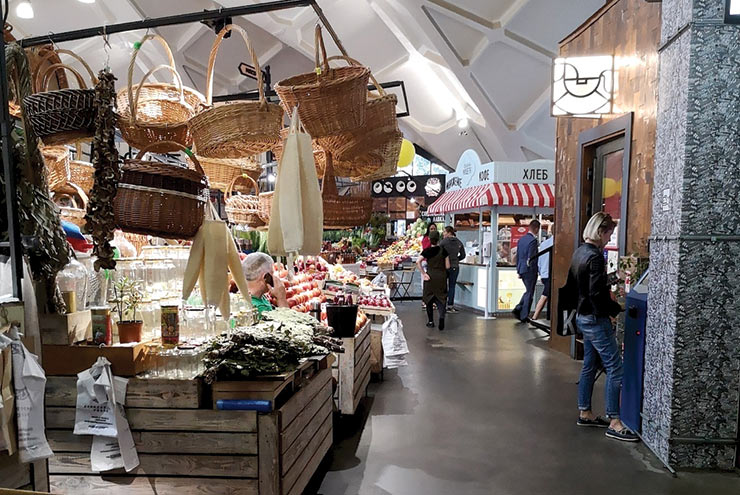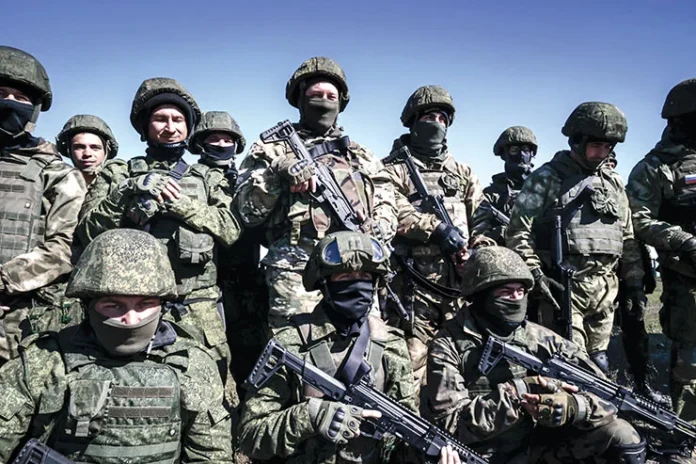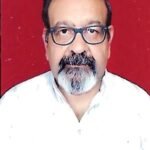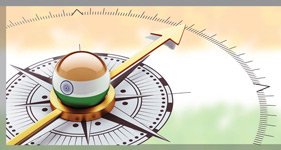After spending almost six months in India under the volley of Western narratives about Russia’s failing special military operation in Ukraine and Kiev on the cusp of turning the tide in its NATO-backed counter-offensive against the invading forces, I was very apprehensive while boarding the plane of highly sanctioned Aeroflot airlines. According to earlier reports, due to the Ukrainian drone attacks, several Moscow airports have been closed during early morning rush hours and arriving flights were being diverted to other cities. However, on September 21 my flight from Delhi landed at Moscow’s Sheremetyevo International Airport right on schedule at 9 in the morning.
The Western narratives amplified by the mainstream English media in India had mentally prepared me to be ready to arrive in a tense war-fatigued capital, with military checkposts and anti-aircraft systems deployed on the crucial locations scanning the morning sky for the invading drones. The moment after clearing immigration and customs formalities, I came out of the airport terminal, and my apprehensions evaporated. Found a very relaxed atmosphere, a taxi ordered through a local aggregator was already waiting and the taxi driver – a friendly Uzbek immigrant from Samarkand – put my baggage in his vehicle and we drove off. On the way I asked him whether he was apprehensive about his family’s welfare in war-torn Russia, he smiled and said life was more comfortable here. Due to problems of remitting money to his family back in Uzbekistan caused by US sanctions, he has moved his wife and children to Russia.
One visible sign of the Western sanctions was the Chinese automakers taking over the huge showrooms of the international brands on the outer side of Moscow’s Ring Road. However, shops are full of products, including an abundance of local and imported fresh vegetables and fruits of the new harvest. Many Western companies have changed the name of their popular products to remain in the lucrative Russian market. For example, Coca-Cola is now being marketed as Dobry Cola after the huge range of its Dobry branded fruit juices produced by its Russian juice plant.
Many Western companies have changed the name of their popular products to remain in the lucrative Russian market. For example, Coca-Cola is now being marketed as Dobry Cola after the huge range of its Dobry branded fruit juices produced by its Russian juice plant
A friend just back from his hometown in the Ural mountains – the geographical borderline between Europe and Asia, told me that small and big towns – historical homes to military-industrial complexes – after the Soviet collapse wore a deserted look, and people like him slowly migrating to bigger cities in Russia’s European part to seek employment, are now back into life with military enterprises working 24X7 and hiring workers to fulfil military orders. Money flow from the government’s defence spending has transformed the life of locals.
In next year’s budget, the government has hiked the defence spending to nearly 70 percent, this also includes higher perks to the servicemen besides the commissioning of newly developed weapon systems.
With more and more US-led Western sanctions against Russia since the start of its Special Military Operation in Ukraine in February 2022, a greater number of urban liberals are falling behind President Vladimir Putin after realising that Washington with the help of its European NATO allies is waging a proxy war against Russia through Ukraine.
Even some officials and experts close to the Kremlin, including former President Dmitry Medvedev, have demanded to lower the nuclear threshold. President Vladimir Putin in his high-profile address to the intellectual conclave Valdai Club (uniting political and security experts from East and West) on October 6 clearly declared that there would be no change in nuclear doctrine as there was no threat to the Russian Federation’s existence and in case of a nuclear strike from any corner the planet, Russia’s automatic system of nuclear protection will within seconds launch hundreds-and-hundreds nuclear missiles at targets across the globe and none of the attackers could get away with impunity.

President Putin explained that the Ukraine crisis is not a territorial conflict. “Russia is the world’s largest country in terms of land area, and we have no interest in conquering additional territory. We still have much to do to properly develop Siberia, Eastern Siberia, and the Russian Far East. This is not a territorial conflict and not an attempt to establish regional geopolitical balance. The issue is much broader and more fundamental and is about the principles underlying the new international order,” he elaborated.
In next year’s budget, the Russian government has hiked the defence spending to nearly 70 percent, this also includes higher perks to the servicemen besides the commissio-ning of newly developed weapon systems
On the backdrop of ‘Ukraine fatigue’ felt in the UK and many EU nations, however, talks about some form of dialogue with Moscow are nipped in the bud, and at the same time, it is becoming clearer that Ukraine can never win a hot war against Russia despite the US and NATO generously funding Kiev. It was NATO’s wishful thinking based on Western mainstream media narratives that Putin’s regime would fall within a week under Western sanctions. They did not realise that the system built by Stalin to defend the country from NATO assault, withstood all the transformations after the Soviet collapse, just because it is in the Russian DNA to mobilise against foes due to centuries of struggle from Mongol hordes in the east and invaders like Napoleon and Hitler from the west.
The US-led West is focused only on Russia’s strategic defeat, without any alternative of promising accommodation of Russia’s legitimate security interests.
“Lasting peace will only be possible when everyone feels safe and secure, understands that their opinions are respected and that there is a balance in the world where no one can unilaterally force or compel others to live or behave as a hegemon pleases even when it contradicts the sovereignty, genuine interests, traditions, or customs of peoples and countries,” President Putin believes.
–The writer is a Moscow-based independent analyst. The views expressed are of the writer and do not necessarily reflect the views of Raksha Anirveda
–The writer is a Moscow-based independent defence analyst. The views expressed are personal and do not necessarily reflect the
views of Raksha Anirveda














